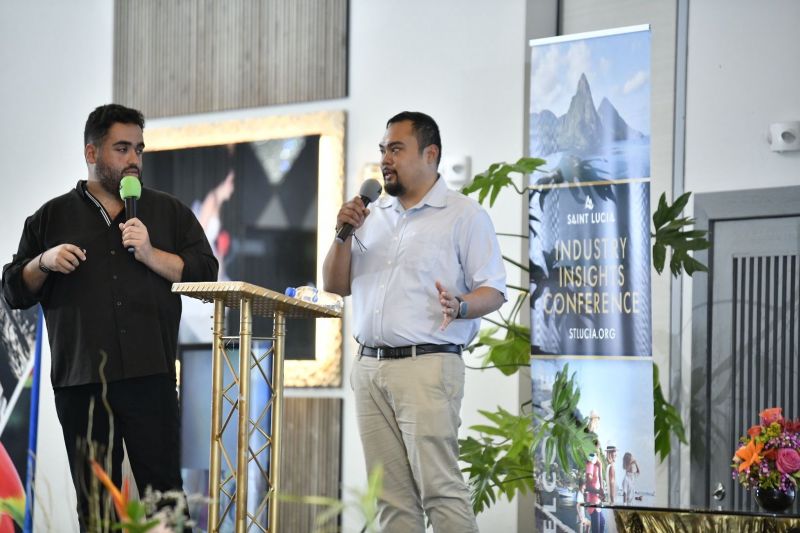
This is a blog by Trove Associate Olivia Silverman-Franklin after attending the AdventureConnect event at Johnson & Wales University.

Trove Founder and CEO Danny and Associate Olivia took a trip to Providence, Rhode Island, for an exciting travel event at Johnson & Wales University, by the Adventure Travel Trade Association. The event started with a short presentation about sustainable travel and an excellent Q&A session with some incredible travel experts, including Bruce Poon Tip of G Adventures, Beth Santos of Wanderful, Vince Ho of the RISE Travel Institute, and Heather Kelly of Powered by Adventure. Their thoughts and opinions on what it will take to lead a more sustainable travel culture have us looking forward to new travel innovations and trends in the coming future.
We then jetted off to another part of the JWU campus for a moment to meet other travel and tourism peers. (Did we forget to mention that Johnson and Wales has one of the country's best culinary schools, and we were delightfully treated to hors d'oeuvres and drinks before we screened The Last Tourist Documentary?)
Bruce Poon Tip, one of the producers for this film, was set to air the film right before the pandemic, but decided to hold. Luckily, they were able to make more additions and edits during the last two years to complete this film with as much information as possible. The movie demonstrated how mass travel impacts the environment and the local communities we frequently travel to. As members of the tourism industry we need to strike the balance between economic benefit and environmental impact and ensure that the right stakeholders are involved and the right businesses are supported.

The Last Tourist brought up many issues stemming from over-tourism, volunteer tourism, and even cruising as well as cited them as some of the leading causes of problematic issues within this industry. The film ultimately asked viewers to do more research before booking their next flight, such as: What are some local vendors or tour operators you can book? What is the history of the area that you are interested in staying in? What are sustainable options that you can make?
Those are excellent questions to ask ourselves as many of us want to be more sustainable when we are traveling. Another question can be brought to light: is sustainable traveling only for the haves and not the have-nots? A few destinations featured in the film, such as Mexico and Thailand, are often known for being inexpensive getaways. There are ways to do sustainable travel inexpensively by choosing the right experience, tours, and vendors that have community impact programs, sustainable mission and are against animal cruelty. A traveler does not need to pay thousands of dollars to stay at a sustainable resort.
We applaud the film's creators for raising awareness about an industry so crucial to the global economy and global connection, yet so reliant on a sustainable value chain. In our quest to find a solution to sustainable travel, our final question is: how can we make sustainable travel become the norm after the “refresh” that is post-pandemic travel?

%201.svg)

.svg)


.png)

.jpg)

%201.svg)